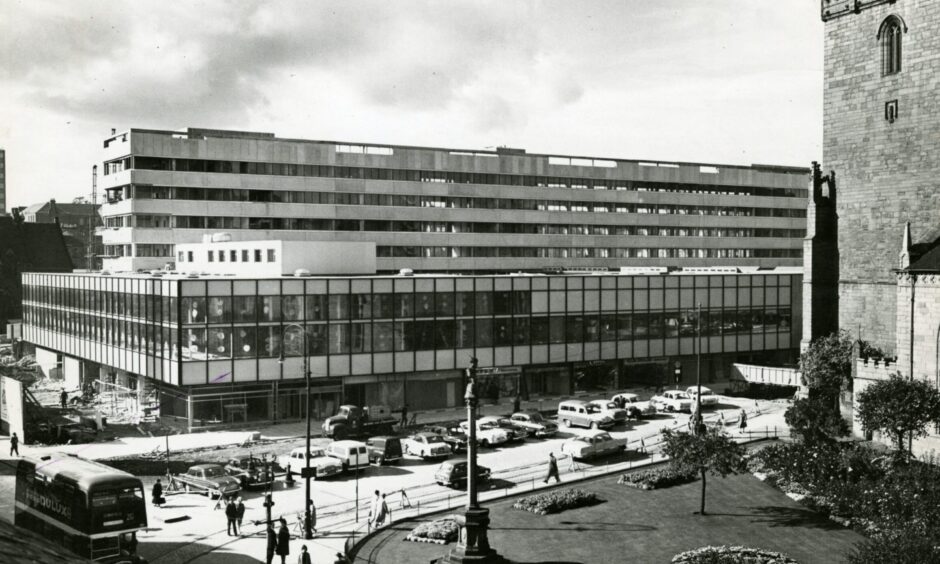
People flocked to Dundee’s “space-age shopping centre” when the new Overgate was first unveiled 60 years ago.
Supermarkets, shoe shops, radio and television dealers, dry cleaners, wallpaper shops and DIY suppliers were among those filling the blank spaces in the shopping arcade.
October 1963 marked the completion of the £750,000 first phase of the £2 million scheme to modernise Dundee’s city centre which was a monument to 53 years of perseverance.
This provided the Angus Hotel, 46 shops and 31,000 square feet of offices to replace the decaying, rat-infested tenements that once bore the name of the Overgate.
The Overgate redevelopment scheme originated in 1910 when city architect James Thomson prepared a huge scheme of improvements for central Dundee.
The massive facelift was repeatedly pigeonholed due to a number of reasons — notably two world wars — before demolition work started in 1957.
Crumbling buildings were swept away to make way for Overgate centre
A triangular wedge of old Dundee, roughly defined by Overgate, Nethergate, High Street and Long Wynd, was to be levelled and rebuilt from scratch.
The unhygienic living conditions, the cramped accommodation and crumbling stonework would be swept away and the tenants moved to “high rise” flats elsewhere.
Within this area only the Old Steeple and the City Churches would remain untouched, standing defiantly all alone as everything around them was cast into oblivion.
Murrayfield Real Estate was appointed as developers in 1959.
The Edinburgh-based firm had offered to redevelop the Overgate for £2m and would pay Dundee Corporation annual ground rent of £40,000 during the 99-year lease.
Like the old Overgate, the new one was the scene of several skirmishes and trouble stemmed from the decision to assign redevelopment rights to a private company.
There was an outcry when proposed rents were announced.
Many of the previous Overgate shopkeepers were unable to take premises in the new precinct despite an agreement that they should be offered reasonable accommodation.
The Scottish Secretary approved the proposals following a public inquiry and Murrayfield took over demolition to make way for Phase One in February 1961.
In September 1961 Murrayfield announced the building contract for the first stage had been placed with Charles Gray (Builders) Ltd from Dundee after competitive tendering.
Unfortunately construction is one of the more imprecise and changing occupations.
Murrayfield and Gray’s struggled on against bad luck and adversity to complete the first phase including the Big Freeze of 1963 which was dubbed ‘the winter to end all winters’.
The redevelopment opened to almost unanimous acclaim.
The Evening Telegraph produced a special supplement to mark the completion of the first phase and highlighted some of the first tenants to take out leases for units.
“This is the trend-setter, revealing the shape of things to come.
“Since the builders’ hoardings were removed, showing the actual development in stone and steel, passers by have shown a great deal of interest.
“No wonder.
“The pedestrian-only precinct, with its shop-front canopies to give customers complete protection in the worst of weather, is not just new to Dundee — it’s new to Scotland.
“Here is a pedestrian sanctuary where shoppers can move in comfort and safety, free from the menace and noise of 20th century traffic.
“Stairs and ramps enable customers to flow naturally through the development from one street level to another — always undercover if they wish.”
Do you remember some of the Overgate shops?
The Evening Telegraph said the blocks were clad externally with self-cleansing materials to “sustain the development’s mint fresh attractiveness”.
“The well-designed, eye-pleasing Overgate of 1963 can bring nothing but credit and prosperity to a city on the threshold of a twentieth century boom.
“As blank spaces in the covered shopping arcade make way for well filled shops and stores, there is a general feeling that this is going to be something big.
“Shoppers seem willing to put up with the temporary inconvenience of having tradesmen, tools and building materials scattered around.”
Dundonians of a certain vintage will fondly remember some of those names.
Alex Massey and Sons, listed as a provisions merchant, was the self service store with the personal attention normally associated with “the wee shop round the corner”.
Birrell’s ladies’ self-service shoe shop and children’s department was on the lower level with the men’s department and ladies’ high-fashion boutique on the floor above that.
Meanwhile, Cable Shoes’ new shop was advertising the latest range in the “materials now in vogue” including “python skin and mock crocodile” and handbags to match.
The “first 50 Dundee old age pensioners” through the door at Caledonian Tailors received the gift of a “shirt, pair of socks and a tie” to celebrate the opening.
Suit you Sir.
Malcolm Campbell opened its third branch in Dundee which would “follow the pattern already set by these ventures” and sell “flowers, fruit, vegetables and tinned goods”.
Crown Wallpapers was advertising 18,000 rolls of wallpaper in stock including “near-exclusive designs” and the staff of five was headed by manageress Betty Malcolm.
Curry’s opened their first branch in Dundee at the Overgate with October 1963 deals including a 17-inch Decca TV for 29 guineas and Westminster radiogram for 27 guineas.
The William Low supermarket was selling the self-service revolution to shoppers although the cooked meats and fresh food sections would still have counter services.
Marley was the first company to bring DIY to UK High Streets and the Overgate shop was selling sheet and tile flooring, rainwater and plumbing goods and carpets.
Menzies and Sons was selling men’s and boy’s wear and was making a comeback to the Overgate after being one of the first firms to close down under the redevelopment.
Alex Munro (Butchers) Ltd sold “top quality home-fed beef, mutton and pork” while Malone Shoe Repairs’ eighth shop offered a “while you wait” service for urgent repairs.
Pullars of Perth was “Britain’s first and best dry cleaners” and the new Radio Rentals branch was the place to get a 17-inch TV set for just seven shillings and sixpence a week.
There was also the opportunity to have something to eat.
When life throws you a steak
The Grill and Griddle opened from 9am to 10pm and served morning coffees, lunches, afternoon teas, high teas, dinners and a steak bar “for the first time in Dundee”.
It was run by Antonio Capitelli whose father ran a fish restaurant in the Overgate.
Commercially, the twin-deck lay-out of shops was a great success in the early years.
The second phase, with 30 shops, two department stores and rooftop parking for 131, quickly followed and the third and final phase an eight-storey, 28,000-square-feet office block was completed in time for its official opening by Princess Margaret in 1970.
There was also a police station and toilets.
There was hardly a dissenting voice, with Dundee Lord Provost Alex Mackenzie, announcing in 1970 that: “In place of the old, narrow, congested streets, there is a spacious, well-designed layout free of traffic which allows trouble-free shopping in the centre of Dundee.
“It is a magnificent achievement and a project which may be taken as an indication of our confidence in the future and in the continuing prosperity of our city and its citizens.”
Who could forget the long tunnels which were incorporated into the mall’s design?
Or climbing up the concrete sculptures as a child?
Sadly the planners’ vision was not the promised land.
Gradually, the west end of the new development found itself out in the cold.
It was too far away from the new and more modern enclosed shopping malls which had opened later in the Wellgate and other central areas, along with the out-of-town retail
parks and, latterly, the waterfront development.
Eventually it was decided to radically redevelop the centre and the Angus Hotel, Overgate House and the entire west end of the old shopping mall were demolished.
The demolition was dubbed a “criminal act” by some Dundonians.
Debenhams became the anchor store at the heart of the Overgate’s second reincarnation in 2000 when the centre reopened as a fully enclosed shopping mall.
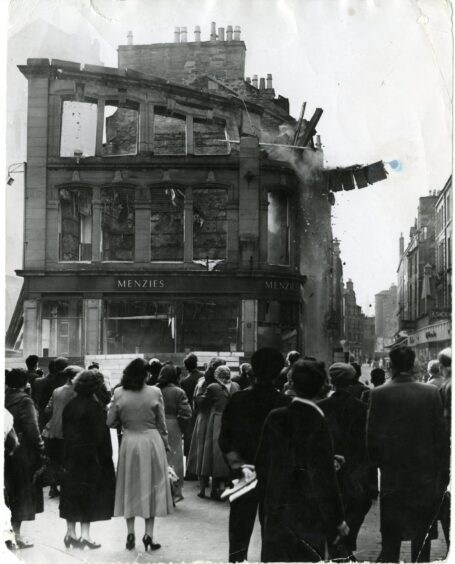
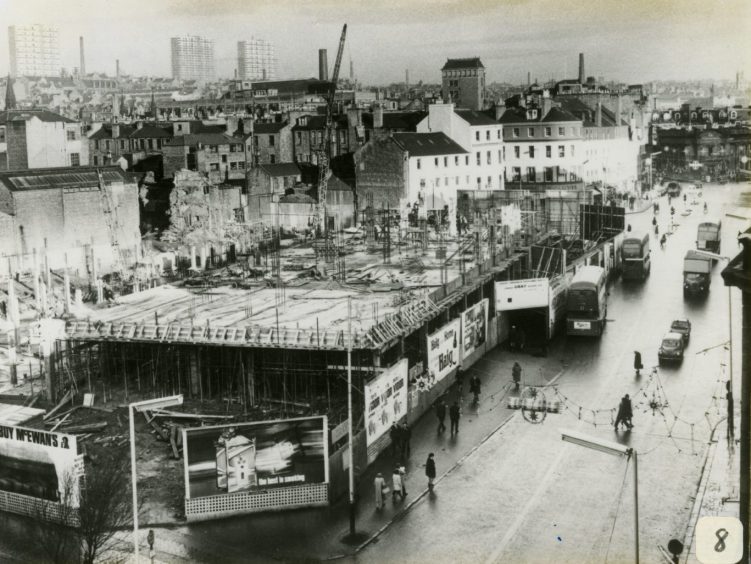
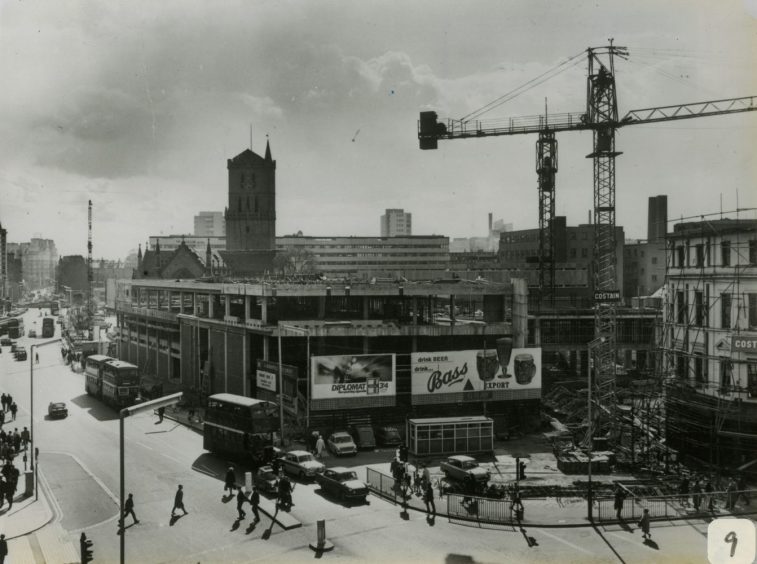
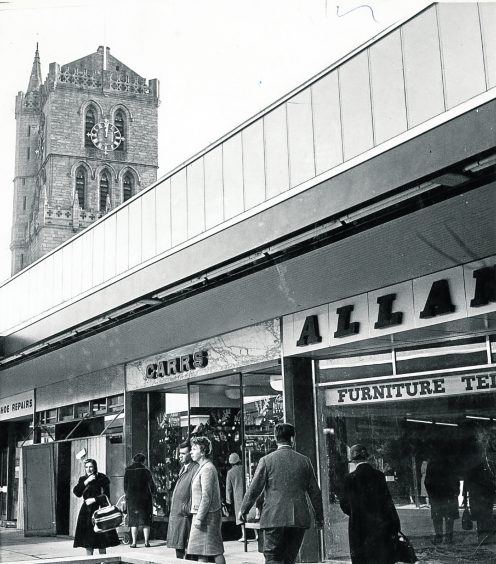
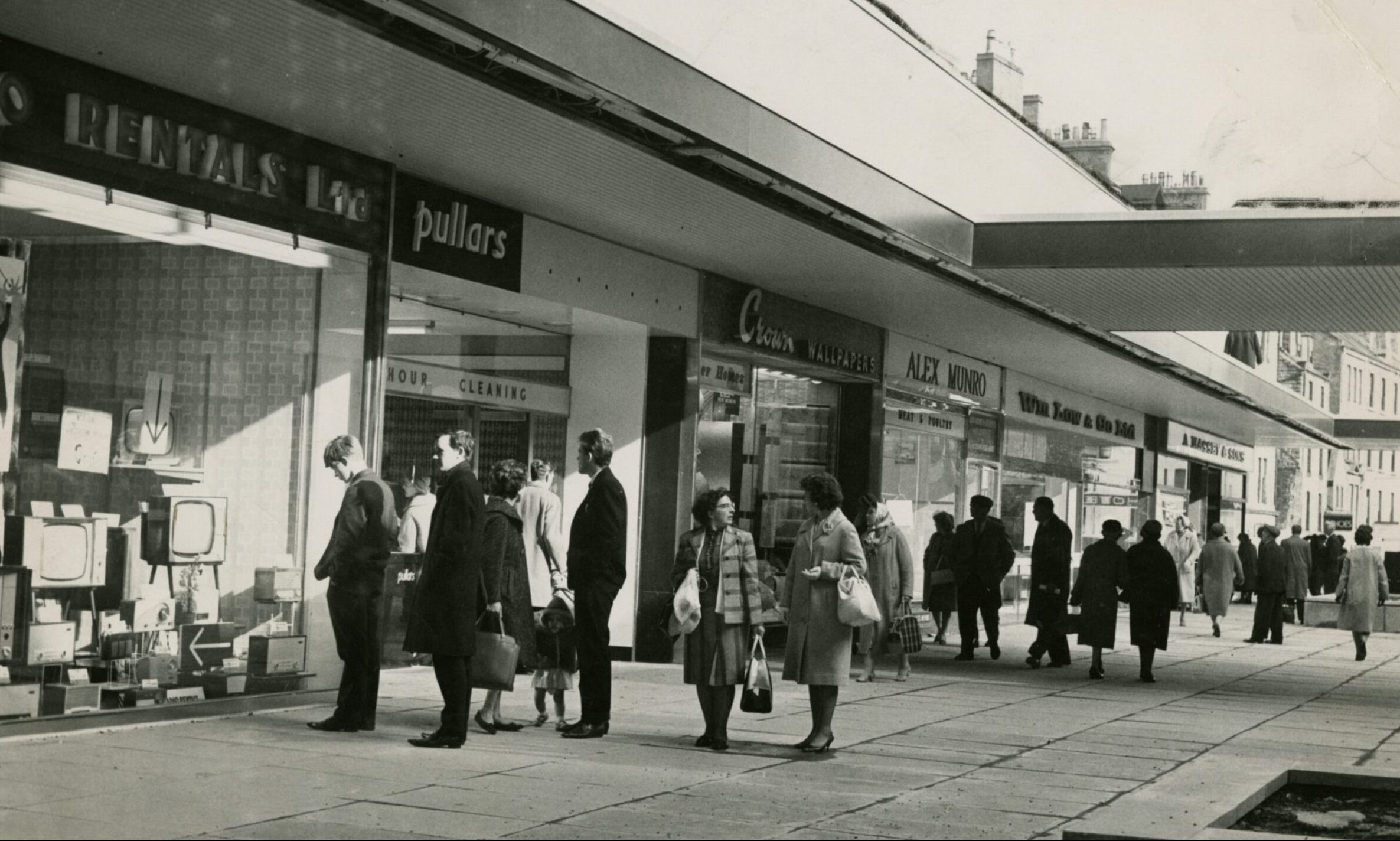
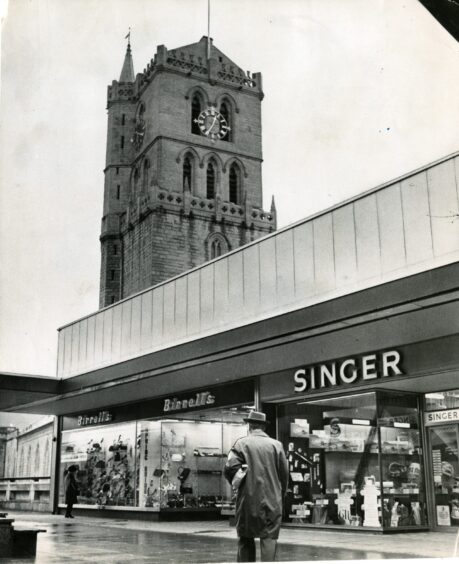
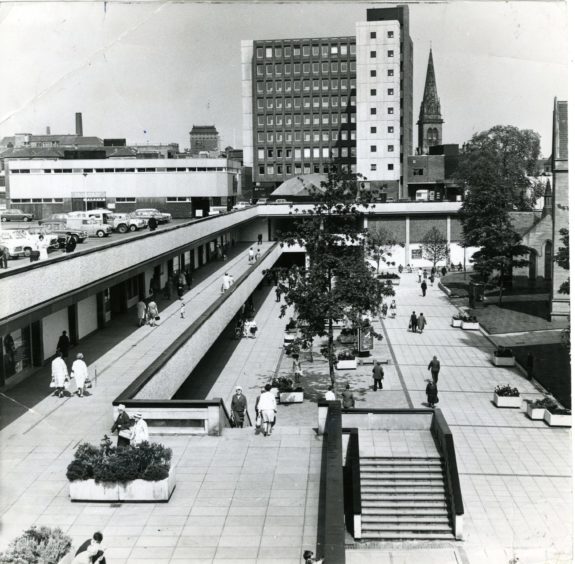
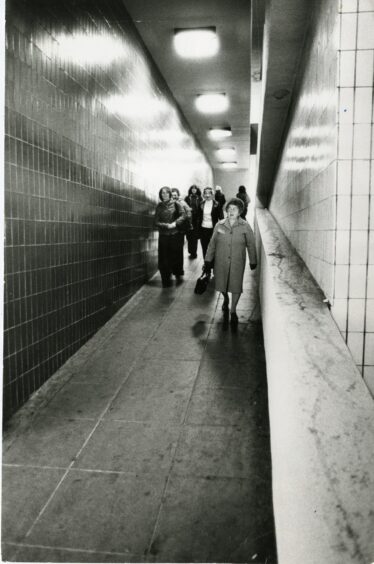
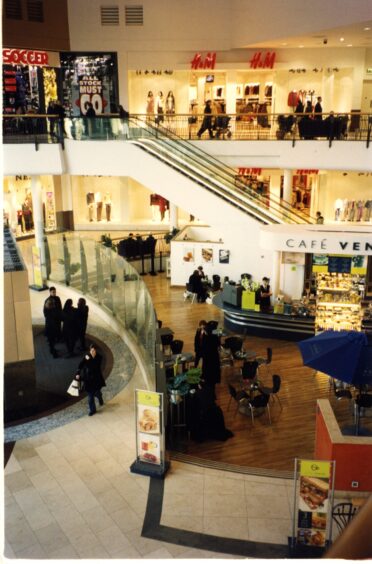
Conversation